Just how many of these NFTs are still worth anything?
There’s been a lot of talk recently about NFTs, mainly that the vast majority of them are now damn near worthless.
Or at least, that’s what the detractors are saying. One report from crypto analysis firm dappGambl that’s making the rounds looks at the price of current NFTs using public crypto scanning sites like CoinMarketCap and NFT Scan found that 69,795 out of 73,257 NFT collections have a market cap of 0 (yes, zero) Ether. That means the vast majority of NFTs are not even worth the data it takes to load up each individual .JPG. Further, the data says that 95% of NFT owners have lost money because their digital tokens are worth squat.
Read more
Other companies are more quiet about their continued exploration of the non-fungible token space. Recently revealed documents show CBS Studios filed a patent for more NFTs based on the Star Trek franchise. This was shortly before the company that had previously been supplying NFTs, Recur, went under during this incredibly frigid, seemingly never-ending crypto winter.
That being said, the new silent trend among some companies is to try and use NFTs to put products behind a paywall. Shopify built a service for merchants to build their own blockchain-based products. With it, sellers can literally “tokengate” users based on who decides to buy an NFT and those who don’t. A few brands are testing out similar setups to see who will be willing to spend money on worthless digital assets just for the chance of joining an exclusive club where you have the chance to spend even more money.
Some of these major brands may still be holding out hope customers would be willing to drop money on nonfungible assets. If so, they may be in for a rude awakening. Click through to see the 11 major brands that just can’t quit their dreams of lambos and going to the moon.
Starbucks Has ‘Pumpkin Spice’ NFTs
Yes, you read that correctly. Starbucks has been bullish about NFTs for the past year, even after that first crypto crash caused by the Terra ecosystem explosion back in May of 2022. The company has promoted that Starbucks rewards members can buy digital collectibles through the Starbucks Odyssey platform.
Earlier this month, Starbucks released a new “Spiced Stamp” digital collection that comes with Pumpkin spice stamps through Odyssey. You can get each NFT in Spiced, Whipped, Iced, and Steamed varieties. Each costs $20 a pop, which also grants users 250 reward points.
CBS Studios/Paramount Thinks Star Trek Needs Digital Collectibles
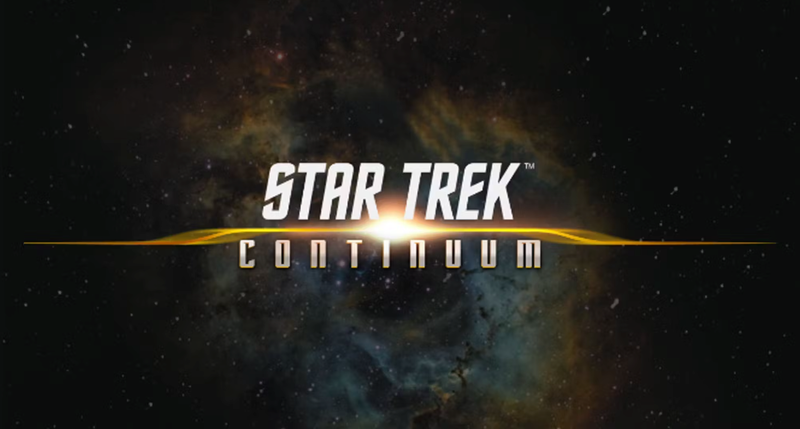
As we mentioned before, CBS Studios isn’t exactly trying to promote any buzz about any upcoming NFT collections even though it’s promoted “Star Trek Continuum” tokens in the past. However, the new trademark for Continuum was granted by the U.S. Patent and Trademark Office on August 8th. As seen in a tweet by trademark attorney Mikke Kondoudis, CBS can use the name for an NFT-centric website and online marketplace for these collectibles.
This was first registered in May this year, meaning that CBS owner Paramount Global has some lingering interest in the space despite some of the big crypto scandals of 2022 and early 2023.
Reddit Still Has Its NFT Avatars
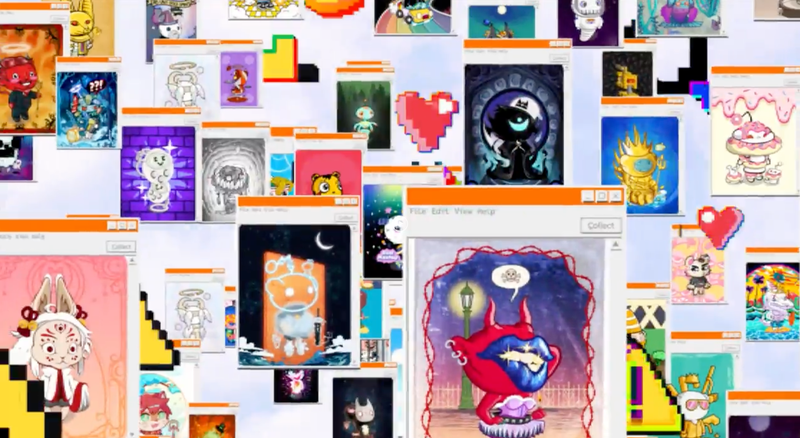
We at Gizmodo were pretty critical of Reddit’s not-NFTs (that were definitely NFTs in all but name) called “Collectible Avatars.” These are non-fungible tokens, but the company didn’t want to use the words blockchain or NFT because it would only help remind people they were working in an overly commoditized, corrupt market.
Reddit launched its Gen 4 for its NFT collectible avatars in July. This time, Reddit set a daily purchase limit of $3,000 for up to three purchases for each avatar. This was to cut down on scalping, but it only helps display just how much money is getting put behind artificially scarce digital images, just to make your avatar look more unique than others.
Ticketmaster Can’t Get Any Worse, or Can It?
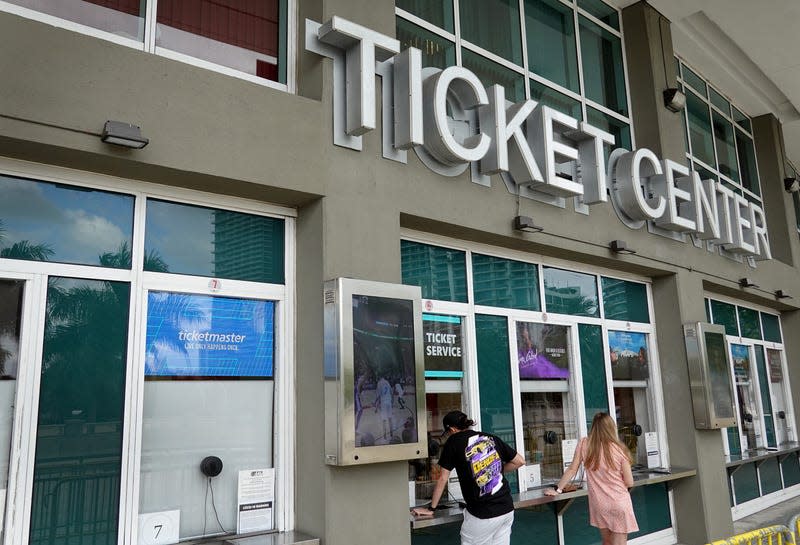
Ticketmaster doesn’t currently have a great reputation right now, or at least, both it and its parent company Live Nation are still dealing with fallout from its botched Taylor Swift Eras Tour ticket rollout. But in March this year, Ticketmaster was already busy further commoditizing the bands who are forced to deal with its haphazard, monopolized service. The company launched the ability for artists to sell token-gated tickets, which forces users to buy an NFT to unlock certain perks like digital memorabilia, but it could have also been used as a ticket to attend events. The company was using the Ethereum blockchain for this rollout, despite previously using a16z-backed Dapper Labs’ Flow blockchain.
McDonalds Didn’t Exactly Supersize Its NFTs in 2023
McDonald’s has tried to cash in on the purple shake hype trend that started this summer thanks to its Grimace mascot. It also tried offering people Grimace-themed NFTs. In August, the megalithic fast food chain company unleashed 2,000 Grimace NFTs onto unsuspecting people in Singapore. You had to go through the McDonald’s mobile app to get them, but at least they were free.
Of course, Mcdonald’s is known for offering limp tech tie-ins, such as in July with the launch of McNuggets Land, which was a metaverse project based on the blockchain-based “game” The Sandbox. Players could walk around a boring, dry McDonald’s-themed environment, hang out in a fake restaurant, and order fake food. The game only ran from July 20 through Aug. 28, so we’ll never know for ourselves if the fake blockchain-based food would give your character as many stomach issues as a Happy Meal does in real life.
Coca-Cola is Still on NFTs with its AI-based ‘Masterpiece’ Collection
Coca-Cola’s recent AI-generated flavor was a big bust, but before it could jump on the AI hype train, the company was already gunning for the NFT crowd. In August, Coca-Cola claimed its “Masterpiece” NFT collection made $543,660 after it dropped on Coinbase’s NFT marketplace. The company has been auctioning off NFTS since 2021, and it doesn’t seem like it plans to stop any time soon. Hell, the ‘Masterpiece’ campaign included an ad that the company said was made using generative AI. It’s as if two overblown tech hype trains crashed into each other, spilling awful-tasting AI-generated Coke flavors on an unsuspecting populace.
Square Enix is Still Publishing a Full NFT-based Game
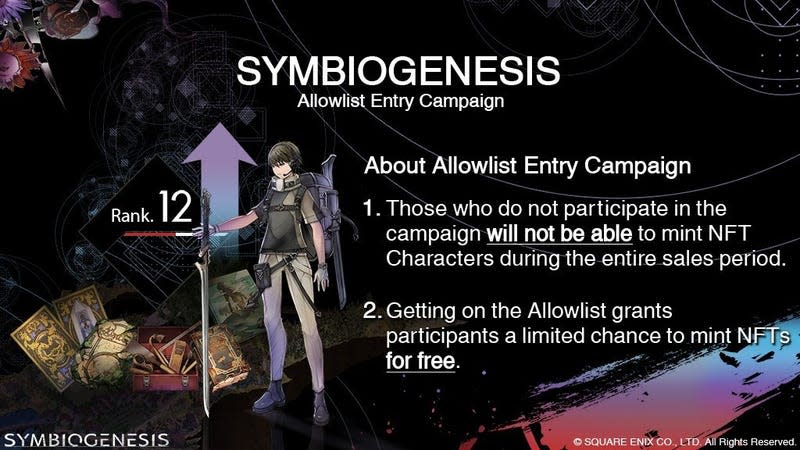
NFT-based games such as the infamous Axie Infinity have not taken off like the ride-or-die Web3 proponents have hoped. Despite that, there are still several major publishers who haven’t abandoned hope for NFTs. Square Enix, for one, has a supposed NFT-based game, Symbiogenisis, in the pipeline. All the promotional material seems to be centered on minting NFT characters for a kind of “story-driven… treasure hunt.”
But there are other major publishers such as Ubisoft and Electronic Arts who have talked up NFTs in games. So far, their attempts at incorporating them such as Ubisoft’s botch job with Ghost Recon Breakpoint haven’t met much success. It’s to the point that Sega, a company that was once extremely excited about NFTs in games, has come out saying it’s walked back many of its non-fungible ambitions.
Adidas Needlessly Adds NFTs to Promotional Campaign
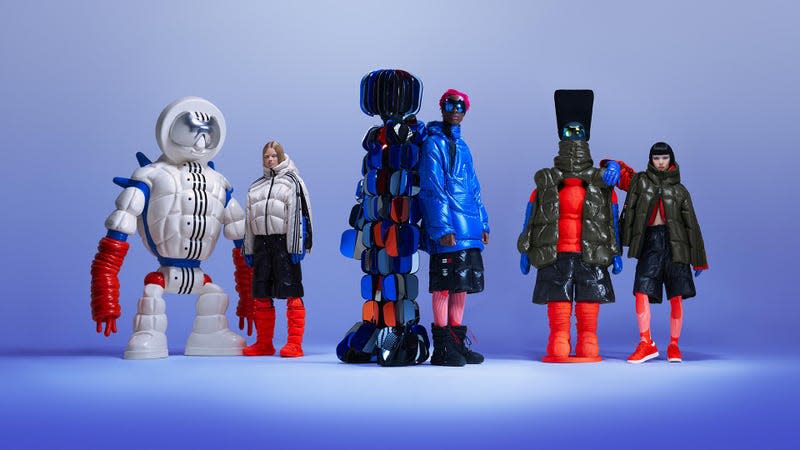
Shoemakers looked at NFTs as an extension of their already-collectible brands. The expectation was that sneakerheads would be willing to snap up limited edition shoes, even though they couldn’t wear them or just stick them in a sealed case.
For some reason, companies keep shilling NFTs even if the campaign doesn’t really benefit. Earlier this month, Adidas started a new collaboration with fellow apparel brand Moncler. To be fair, there are actual products you can wear among this offering, but included in the promotion is a bunch of limited edition NFTs given away for free. The pictures in the NFTs are based on real-life sculptures from human artists.
Nike Uses NFTs to Make Shoes More Exclusive, More Expensive
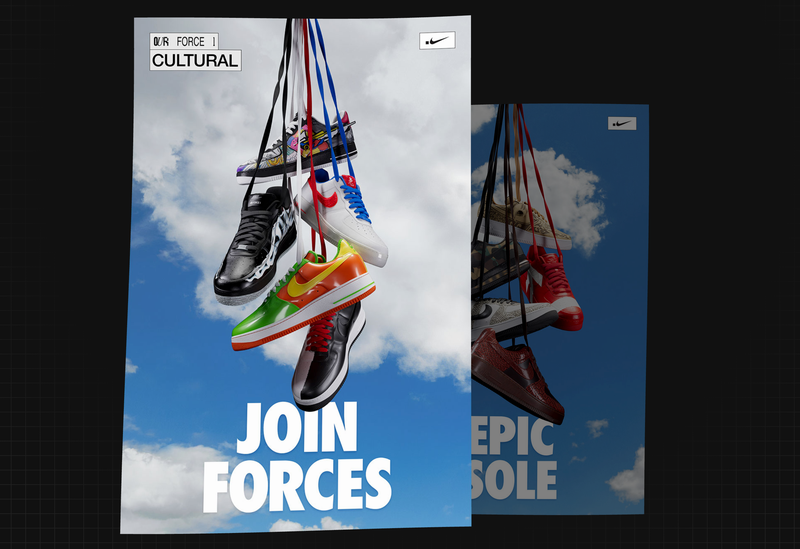
Not one to be outdone in the NFT shoe space, Nike is now releasing sneakers exclusive to people who have already bought up one of the company’s limited NFTs. This was part of the campaign from earlier this year where shoe buyers had to purchase an NFT from the company’s .Swoosh store. Users need to buy one of these OF1 tokens in order to get access to a new Air Force 1 Low sneaker titled “TINAJ”—short for “This is Not a JPEG.” The NFTs were sold for $19.82 with each showing a different AF1 sneaker of the past. All this does is add an extra bit of exclusivity, and turn a $120 shoe into a $140 shoe thanks to the forced NFT purchase.
Shopify Uses NFTs to Gatekeep Products

In February this year, online shopping company Shopify launched new commerce tools to let merchants “tokengate” some of their products. Essentially, this lets merchants “segment buyers” based on who decides to buy NFTs and who doesn’t. Shopify implies this will build “communities” by putting up gates between those who decide to buy an NFT and those who don’t. Those who own an NFT could get access to specific products or discounts. Those who don’t buy in are left out.
The constant use of “gate” to describe the system seems to imply Shopify is happy with literal gatekeeping, forcing an in-group and an out-group based on who has more money to spend on FOMO. Let’s hope this new threat of using NFTs for exclusivity doesn’t catch on.
The Walt Disney Company Lets NFT Maker Sell ‘Digital Toys’
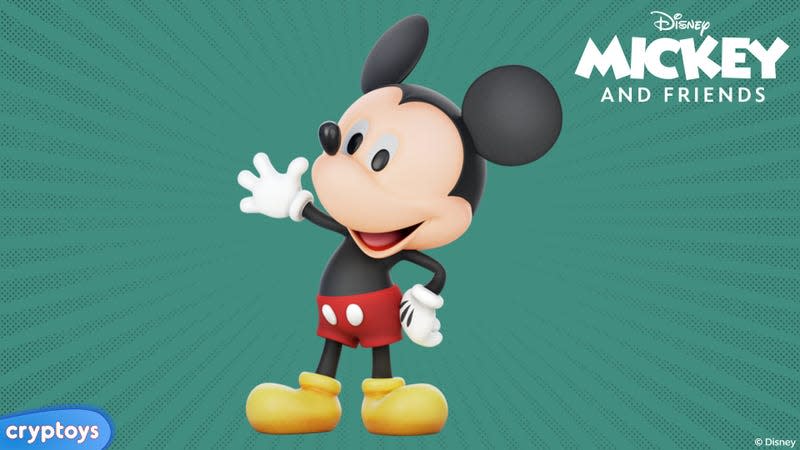
Cryptoys is a company that works with other major brands in order to sell NFTs of some of the most popular toy brands around. Last year, it managed to nab Barbie even before the Barbie movie shot the brand into ultra popularity. Now it’s managed to latch onto Disney’s brands with an emphasis on selling NFTs to young people. First, the company managed to nab the Star Wars franchise. These essentially work like a big, NFT-based loot box where users don’t know what they’re going to get or the rarity of the NFT.
In August, Cryptoys announced it was getting in bed with Disney to sell Mickey Mouse, Minnie Mouse, and Pluto NFTs, which went on sale last month.
Cryptoys is backed by major tech venture firm a16z, The company sells its NFTS with five different levels of rarity, emphasizing the collectible nature of NFTs though again, emphasizing the fear of missing out on products that have relatively limited use. In July, Cryptoys said it would start trying to integrate “kid-friendly” AI chatbots into its NFTs. The feature is not yet available, but if there’s anything we don’t need more of, it’s AI hype combined with the waning star that is crypto.
More from Gizmodo
Sign up for Gizmodo’s Newsletter. For the latest news, Facebook, Twitter and Instagram.
Click here to read the full article.
This news is republished from another source.




































